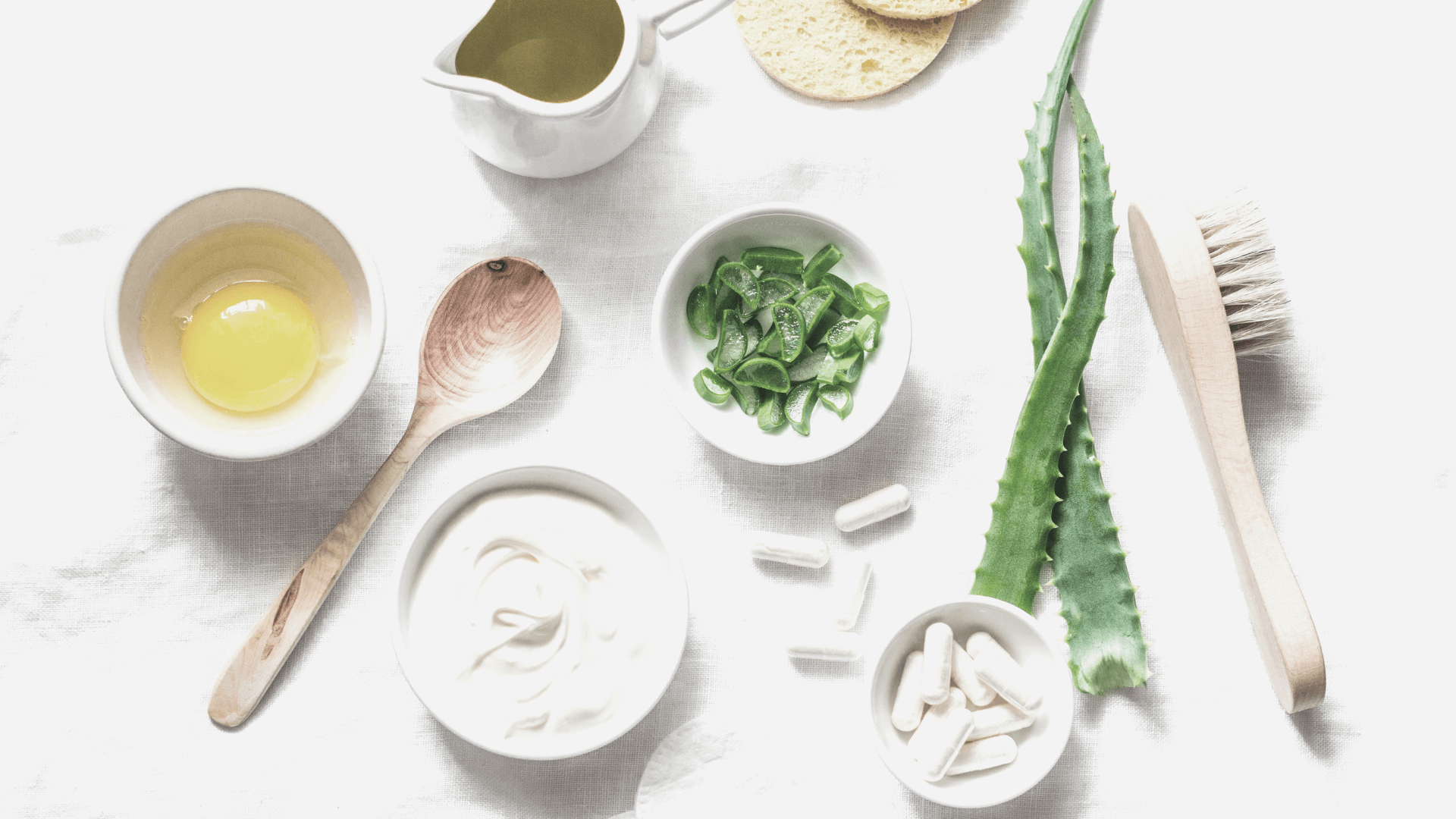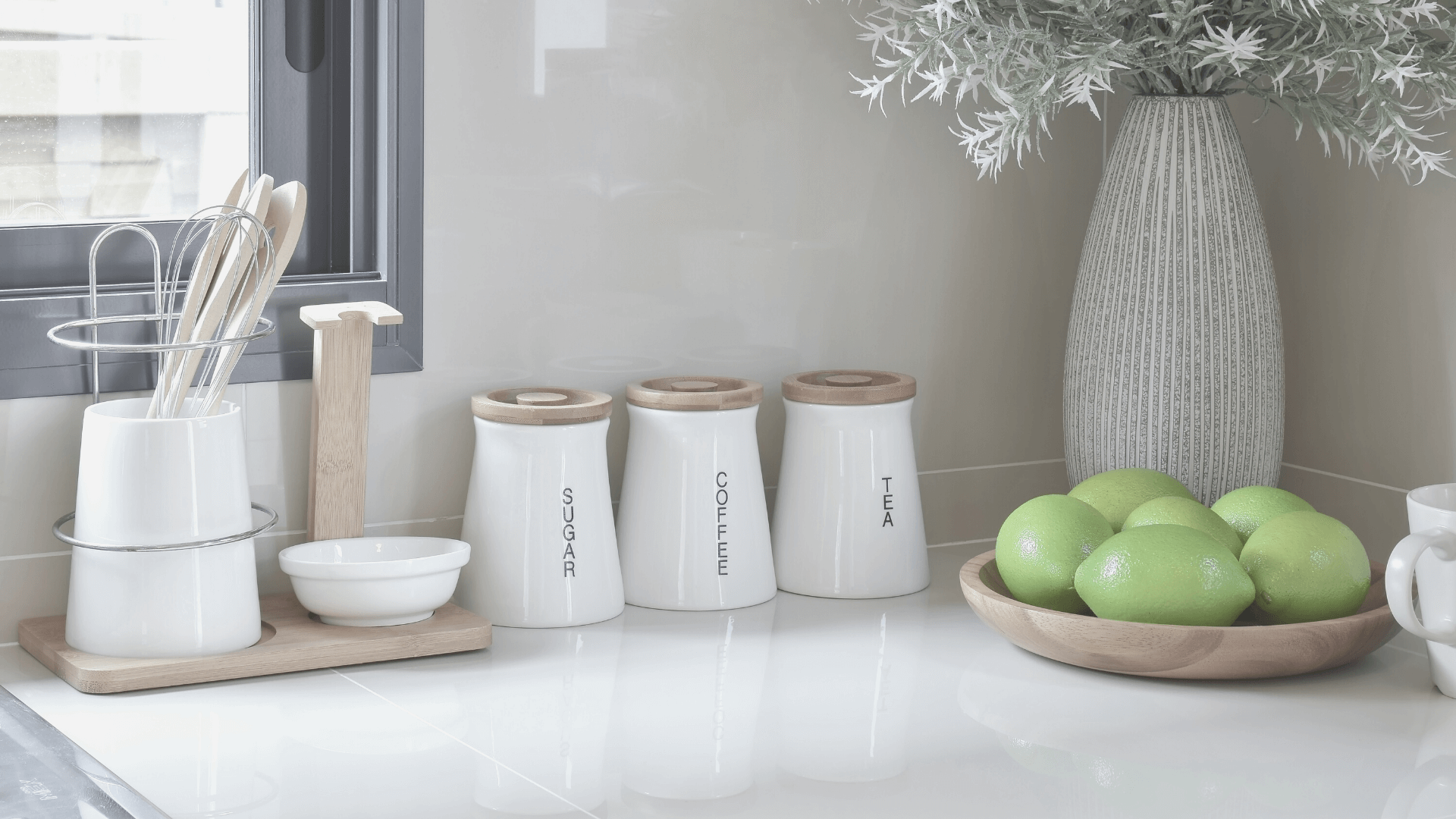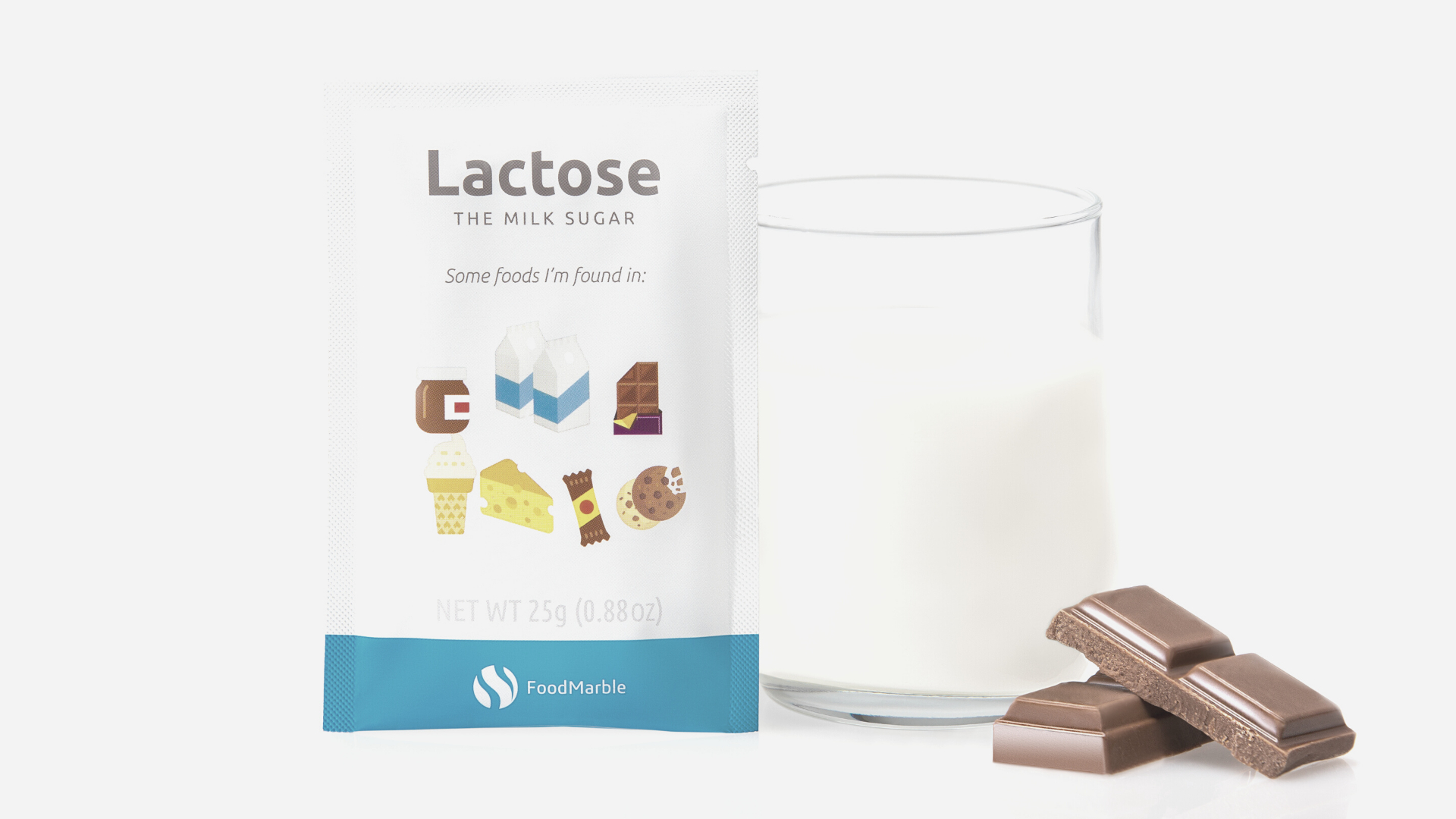A common question is, “Can you drink alcohol while taking probiotics?”
Since I’m fully underway with Sober October, I thought it would be the perfect time to research and address this question.
Can You Drink Alcohol While Taking Probiotics?
Click HERE to save this article for later.
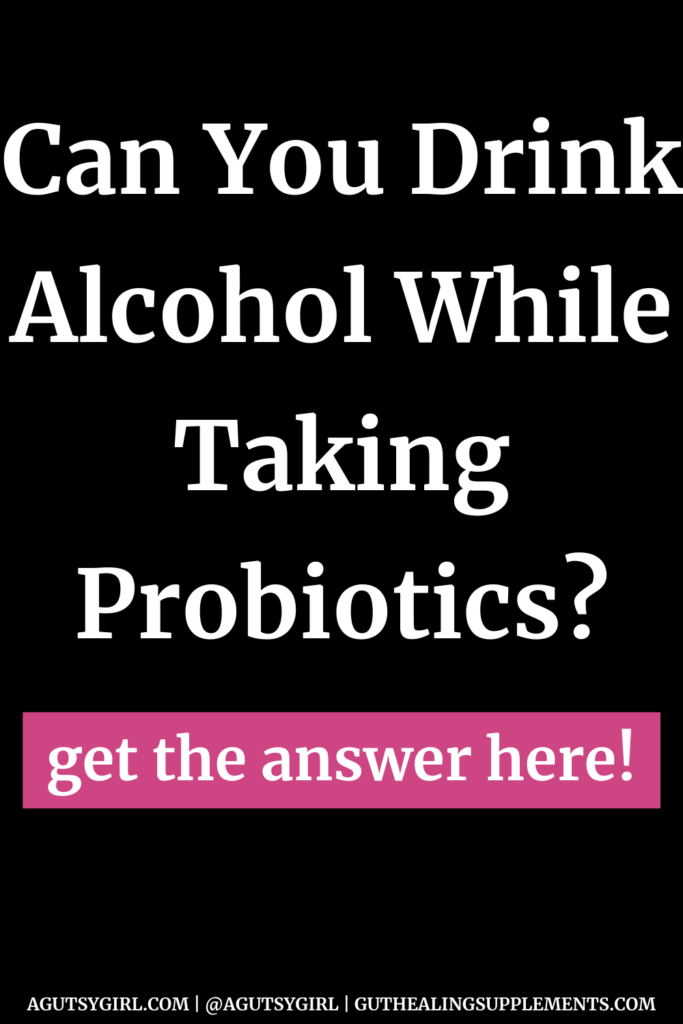
Before we can answer the question, let’s break both alcohol and probiotics down further so we have context.
What is a Probiotic?
Pro = for
A probiotic stimulates the growth of beneficial bacteria.
Simply put, a probiotic is “good bacteria.”
Probiotics are active cultures of bacteria that can colonize in your gut.
This helps to reestablish healthy levels of bacteria within your small intestine and large intestine, which can be a game-changer for your overall health.
A healthy gut microbiota (the collection of bacteria, yeasts, and other microbes) help not only to digest food, but also to manufacture vitamins, prevent harmful pathogens, regulate immune health and connect to mood.
The integrity of your gut plays a key role in ensuring the rest of your body is functioning at its optimal position.
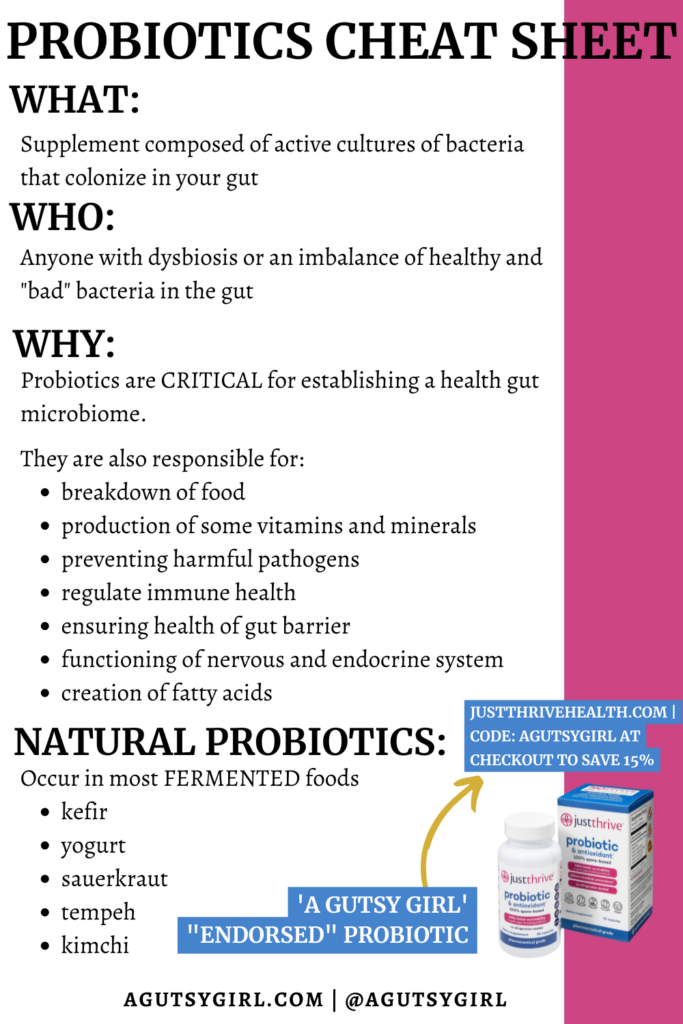
Some other functions of healthy bacteria in the gut include:
- ensuring health of gut barrier
- regulating enzyme action
- creation of cytokines (key player in immune system)
- functioning of nervous and endocrine systems
- creation of fatty acids
Most probiotics contain different levels of Lactobacillus, Bifidobacterium, Saccharomyces, Streptococcus, Enterococcus, Escherichia, and Bacillus.
These can be extremely helpful in individuals with irritable bowel syndrome who suffer from bacterial dysbiosis.
This means that the “bad” bacteria have overrun the “good” bacteria and the gut is no longer in its optimal state.
Probiotics can help to regrow friendly bacteria colonies that push out the bad bacteria.
Source: HERE
There are two main ways we get probiotics; via probiotic supplement and/or by consuming probiotic-rich foods, such as:
- Yogurt naturally contains probiotics, but some manufacturers add additional strains, such as L. acidophilus
- Miso is a fermented soy-based condiment. It makes an awesome flavor addition to soup
- Fermented vegetables, such as sauerkraut, pickles and kimchi, especially those that are homemade or sold refrigerated
- Kombucha is fermented tea
- Kefir is a fermented thick drink, similar to yogurt, but made by inoculating cow, sheep or or goat milk with kefir grain
- Buttermilk is fermented milk. Traditionally, it was made from the liquid left behind after churning butter, but most modern buttermilk is cultured
- Creme fraiche is a thick dairy product, similar to sour cream
A Probiotic Supplement
There are SO many probiotic supplements out there, it can get a bit confusing on which ones to try out.
My personal advice regarding probiotics is to try out which ones make YOU feel the best.
Since everyone has such a unique gut microbiome, different probiotic strains are going to have different outcomes on everyone.
Since there are so many different brands, I am going to give some thoughts on choosing a probiotic.
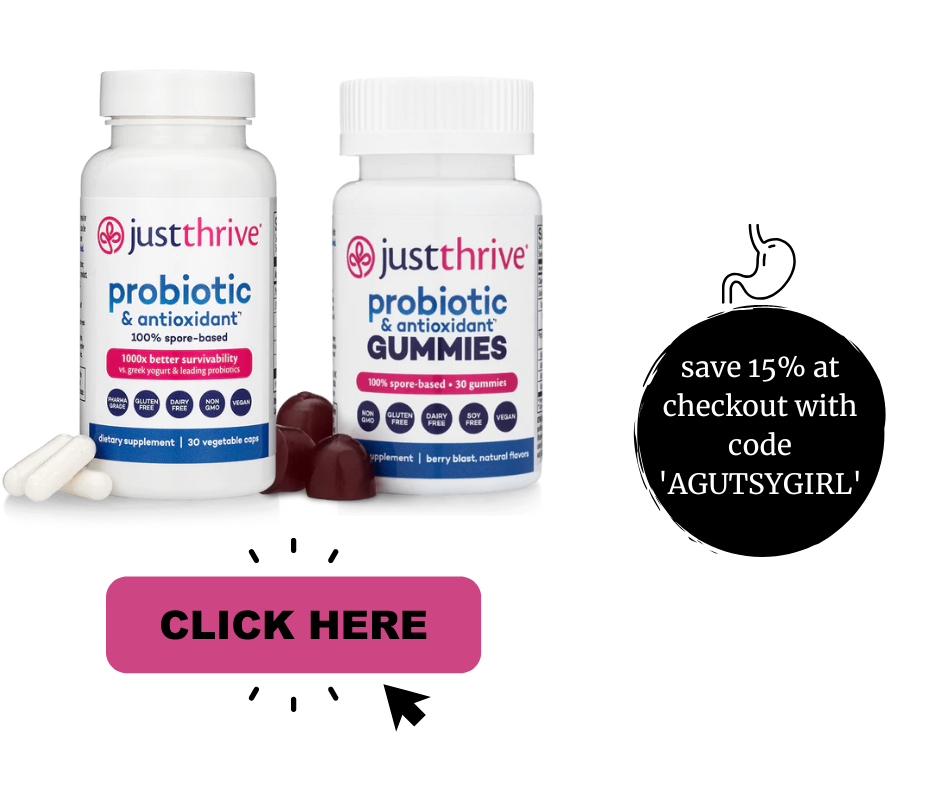
This is the A Gutsy Girl probiotic supplement of choice from Just Thrive Health. Whenever you purchase anything from Just Thrive Health, you can use code ‘AGUTSYGIRL‘ at checkout to save 15.
HIGHER CFUS DOES NOT MEAN BETTER
Oftentimes it is touted that the more strong a probiotic is, the better it will work. This is measured by the CFU count on the package, which explains how many colony-forming units there are.
For Gutsy girls especially, it can be helpful to start with a lower dose and work your way up to those stronger ones.
REFRIGERATION IS NOT A REQUIREMENT
Some people still firmly believe that if your probiotic does not need to be refrigerated then it is not “real.” This is entirely untrue as most bacteria can thrive at room temperature and often grow the best at these conditions.
LOOK FOR THOSE EXTRA INGREDIENTS
Unfortunately, as with most supplements, companies will add in fillers and other unnecessary ingredients. This can upset your gut further and cause inflammation, which is the exact opposite of what we are going for.
Try and find products that are as clean as possible and contain little to no added ingredients.
Gut Health and Alcohol
Now, before I even address the idea of consuming alcoholic drinks while taking probiotic bacteria, let’s talk about the overall effects alcohol has on gut health.
The NIH states that,
Chronic alcohol intake leads to intestinal inflammation, including altering intestinal microbiota composition and function, increasing the permeability of the intestinal lining, and affecting the intestinal immune homeostasis.
What Exactly IS Alcohol?
In order to understand more about the consequences of alcoholic beverages on the digestive system, first understand the basics of what alcohol is:
Ethyl alcohol, or ethanol, is an intoxicating ingredient found in beer, wine, and liquor. Alcohol is produced by the fermentation of yeast, sugars, and starches.
Effects of Alcohol on Digestive Health
(Sources for the information in this section can be found HERE)
This final product, which chemists compound to ethanol, has negative consequences for the digestive tract and the human body in general.
Here is how alcohol impacts various parts of the digestive system:
Mouth and Throat
You already know by now that digestion begins in the mouth with saliva, where necessary digestive enzymes are produced (digestion actually begins even before food hits the mouth in anticipation of food, but we’ll skip that for now!).
Once that glass of red wine hits the mouth, microbes in the mouth convert some of the alcohol to acetaldehyde. This can damage cells over time and can stop them repairing the damage, leading to cancer in the mouth and throat, including the base of the tongue and tonsils.
Esophagus
As the alcohol makes it way down, the first place it reaches is the esophagus.
We already know that alcohol can damage the esophageal cells lining, and this, of course causes things like acid reflux and GERD.
Stomach
Alcohol is absorbed directly into our blood, and “About 20% of the alcohol is absorbed into the blood directly through the stomach lining.”
This is why the recommendation is to have food particles in your stomach prior to having that drink so the alcohol is absorbed at a slower rate, taking a longer time to move into the intestines.
The consequence of drinking alcohol on an empty stomach is that it will move quicker into the small intestine, passing at a rapid pace into the blood stream.
It is in the stomach where even further negative effects occur:
- Irritate cells in the stomach lining causing inflammation.
- Impact stomach acid production and reduce the stomach’s ability to destroy bacteria that enter the stomach, which can allow potentially harmful bacteria to enter the upper small intestine.
- Drinks with higher alcohol percentage can delay stomach emptying and impact digestion.
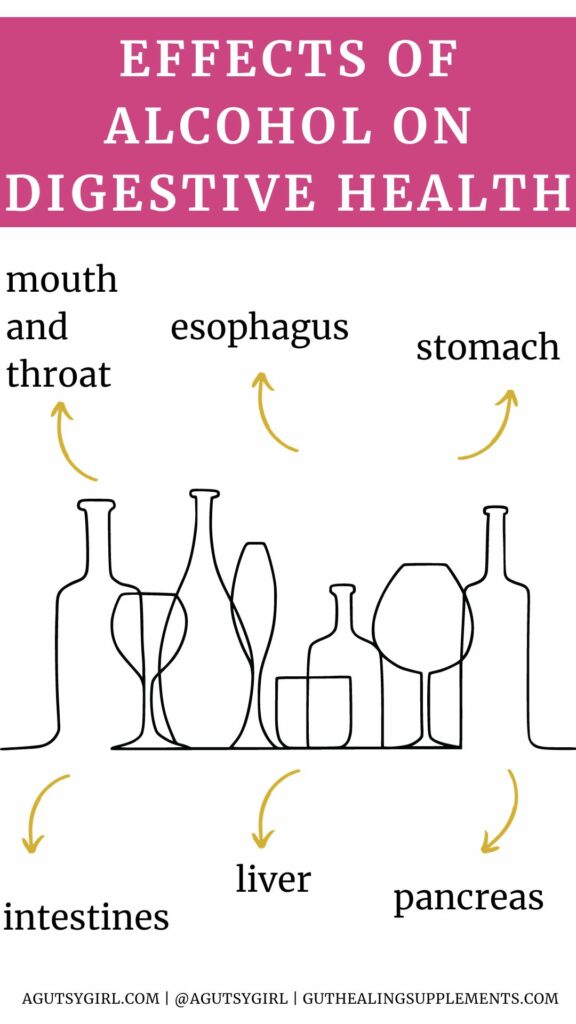
Intestines
Next, remember that we absorb most nutrients in the small intestine.
Because the breakdown of alcohol not only causes damage to the intestines but also is prioritized at the expense of other nutrients, nutritional deficiencies occur at a more rapid pace.
Liver
When most think about chronic alcohol consumption, they immediately turn to a liver health problem.
This is because more than 90% of alcohol is broken down by enzymes in the liver to be removed from the body.
When the liver breaks down alcohol, it is converted to acetaldehyde, a highly toxic chemical and Group 1 carcinogen.
The more cells in the liver try to repair the damage, the more likely they can make mistakes in their DNA, which can lead to cancer.
Pancreas
Finally, the pancreas makes enzymes for digestion and the hormone insulin, which helps the body turn food into energy.
Excessive drinking damages the pancreas, which in turn (again) causes inflammation (known as pancreatitis).
A New Way to Think About Alcohol and Your Gut
Besides all the fancy descriptions above for the reasons why alcohol damages an otherwise healthy gut microbiome, consider this:
Age-old remedy for healing cuts and wounds is alcohol. Why? Because it kills the bacteria that could potentially cause infection.
If alcohol can do this externally, it can also do it internally.
And isn’t the goal for the most robust microbiome to have microbial diversity? Alcohol will kill all types of gut bacteria, which is the exact opposite of what we are trying to do in the Gutsy community.
Is it JUST Excessive Alcohol Consumption?
One question everyone always wants to know is….
Is there any amount of alcohol that can be good for me?
According to The World Health Organization via a statement in The Lancet Public Health: when it comes to alcohol consumption, there is no safe amount that does not affect health.
The New York Times reports,
For some cancers, such as liver and colorectal, the risk starts only when people drink excessively. But for breast and esophageal cancer, the risk increases, albeit slightly, with any alcohol consumption. The risks go up the more a person drinks.
The Combination of Probiotics and Alcohol
Naturally, one might think, then, that since a probiotic assists with good gut bacteria and alcohol decreases it, they might just cancel each other out?
First, is is safe to take your probiotic with that glass of wine?
A probiotic is not a medication so there are no adverse effects for taking the probiotic with alcohol.
However, research indicates that if you choose to take a probiotic with alcohol, it might not have the same positive effects for your overall health.
That being said, the answer is that YES, yes you can still take probiotics if you’re also choosing those glasses of wine or hard seltzer.
Research indicates the following as it relates to probiotics and alcohol:
- Choose to wait at least 4-6 hours after taking your probiotic before consuming alcohol. This will allow the friendly live bacteria to fully reach the intestines before too much alcohol negates the benefits.
- When it comes to the next day (after a night of drinking), one source states, “Probiotics have also been shown to help ease hangover symptoms by reducing the amount of alcohol absorbed by the intestines and repopulating the gut bacteria eliminated by the alcohol.”
Conclusion
While there are many probiotic health benefits beyond the gut health, one of the highlighted benefits is not that they can negate the consequences of heavy drinking or any amounts of alcohol for that matter.
As a dietary supplement, the intention behind taking the probiotic is to incorporate it alongside an overall healthy lifestyle.
While it’s not reasonable to ever expect anyone (myself included) to never enjoy a spirit-infused beverage, the side effects of alcohol consumption are very clear.
Even if you do not have inflammatory bowel disease, cancer or irritable bowel syndrome, the truth is that consuming alcohol is creating alcohol-related damage to the intestinal tract.
The best way to avoid the inflammatory response alcohol creates is to reduce it as much as possible, even potentially giving it up for a period of time.
Since starting Sober October, I know I have felt so much better overall!
And now, the positive effects of the number 1 probiotic out there are really helping aid in my strong gut lining and overall gut flora.
If you liked this post, you might also enjoy:
Xox,
SKH
🤰 bloating be gone! weight loss through optimal gut health for women
💃ʜᴇᴀʟ ʏᴏᴜʀ ɢᴜᴛ. ʜᴇᴀʟ ʏᴏᴜʀ ʟɪfe.
🫶🏻 founder gutbyome.com



